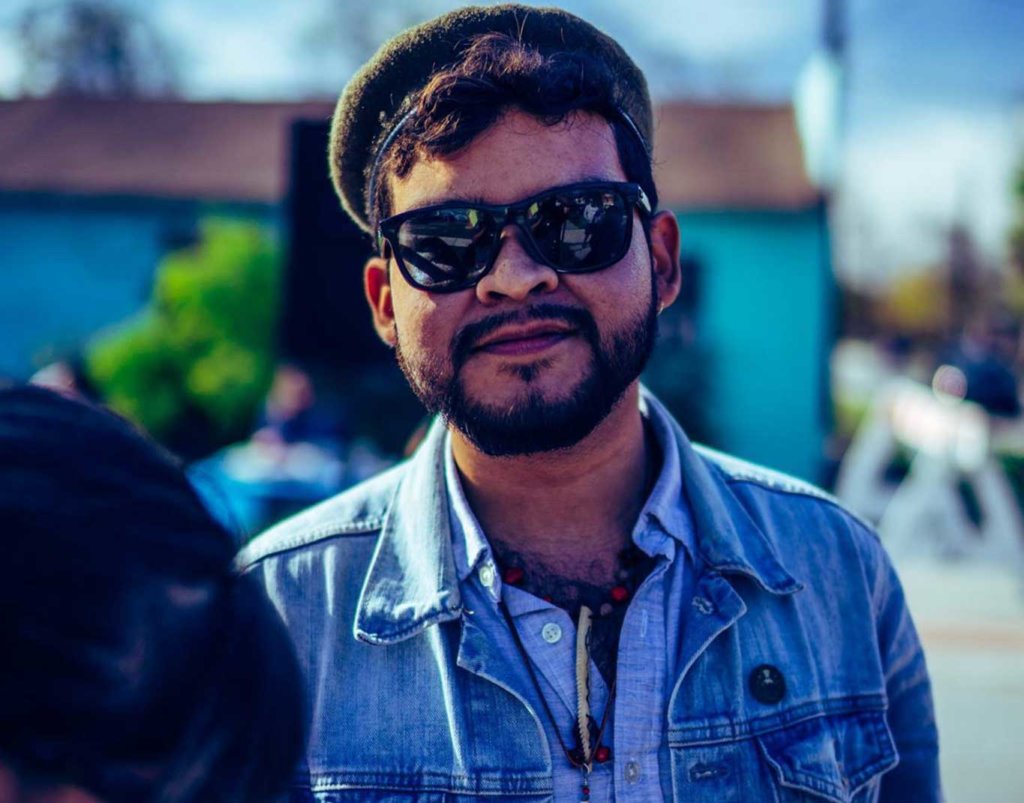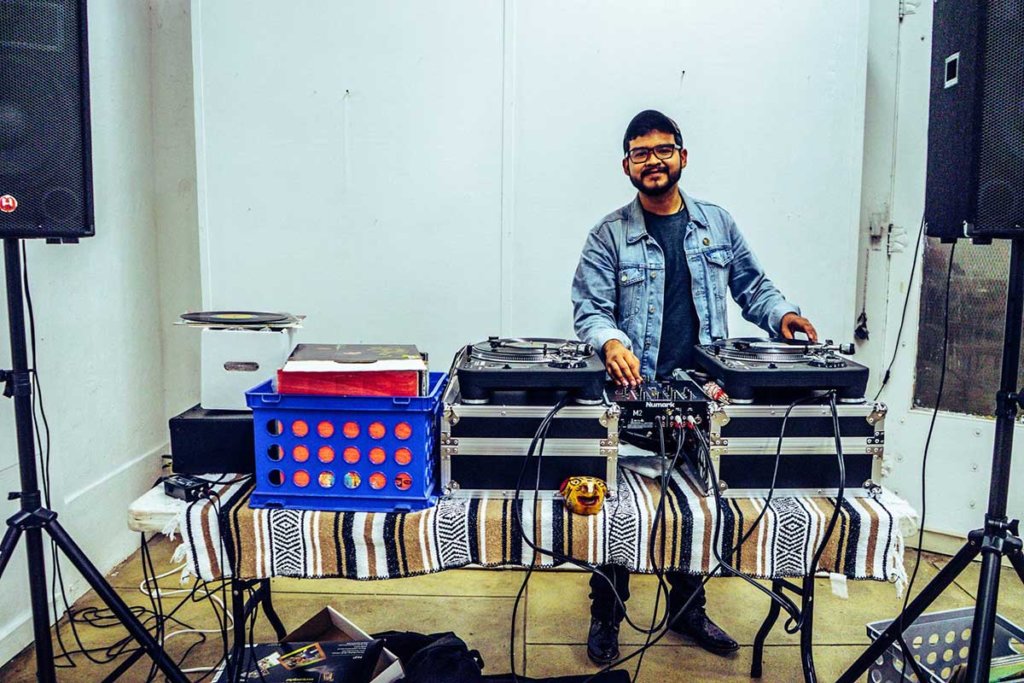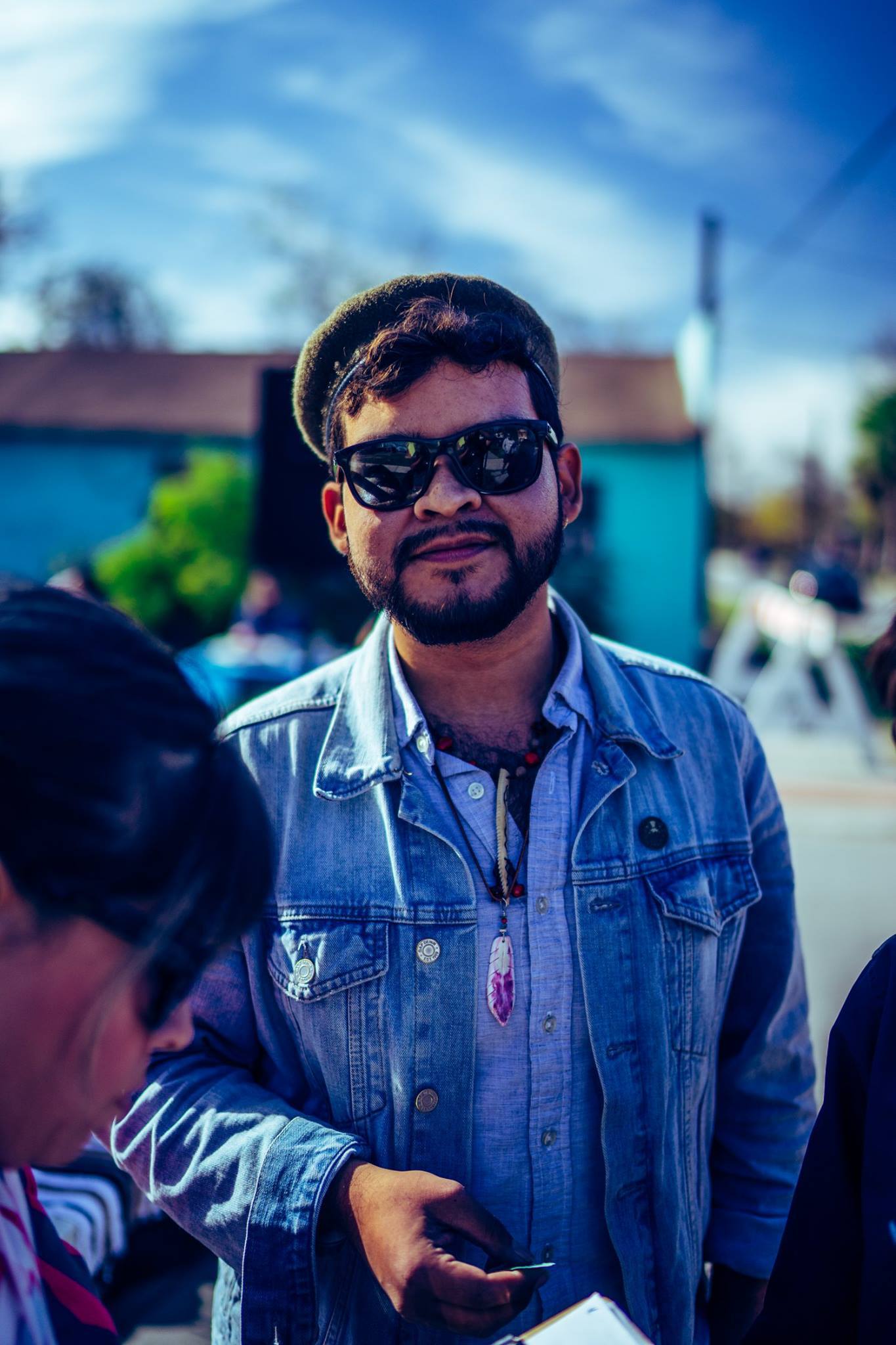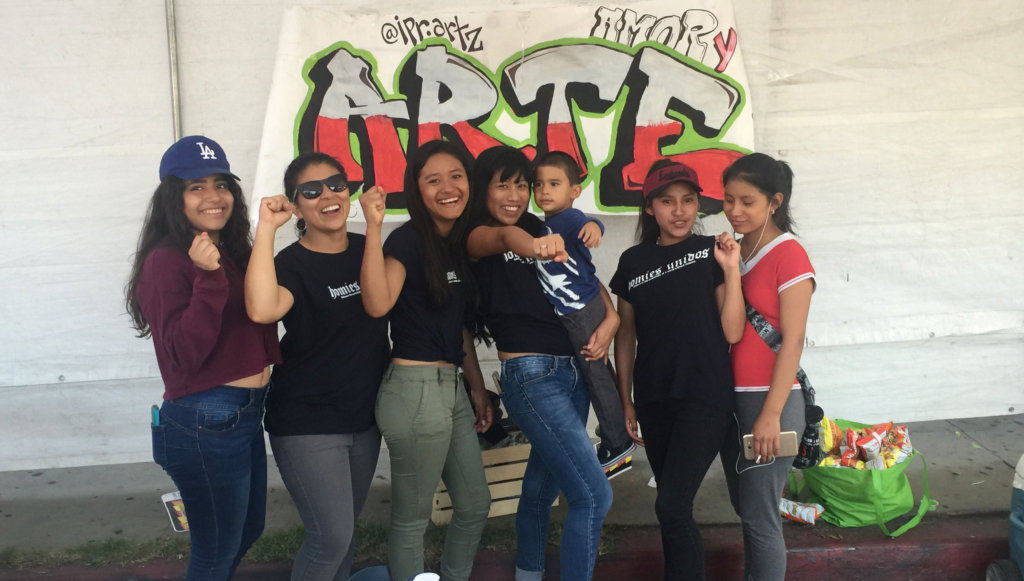Breaking the colonial shackles
How an UnidosUS Líderes Con Alas fellow found a life mission in dark times

By John Marth, Senior Content Specialist
Most people try to hide from the San Antonio sun, but Matt Hinojosa found something special in the scorching heat.
Keep up with the latest from UnidosUS
Sign up for the weekly UnidosUS Action Network newsletter delivered every Thursday.
“I could feel myself getting close to this transcendental force just by being outside and working on the land,” he says. He was doing landscaping full-time and found a few hidden benefits no one told him about. “I could drink all day,” he says, “just detoxing and sweating in the sun.”
“It felt good, but at the same time, that was when I was deepest in my addiction.”
He was taking a few semesters off from college to save for tuition and a car, and to pay off fines from drug and alcohol charges.
Matt had been drinking and using drugs since he was a teenager, and it was affecting every part of his life. By the time he started landscaping, he’d dropped out of two different colleges, been arrested, and was losing hope.
“I was in a really dark place in my life. I didn’t have much to be proud of.”
Not long after, another semester in college would put him in touch with his Chicanx history and get him sober. All of these things—addiction, recovery, connection to something larger—would lead Matt to his life’s work.
‘I WAS ROTTING FROM THE INSIDE OUT’
Matt grew up in Laredo, a border town in Texas. “My family struggled to scrape up an existence,” he says. For some of them, that meant involvement with drugs and relying on alcohol to cope with what Matt calls a “disconnectedness of community.”
The family moved to San Antonio when Matt was 13. He eventually started drinking and using too, but his parents still insisted he go off to college.
A few family members had started college, and his father took a few classes to get his real estate license, but Matt wasn’t sure what he’d experience in college.
“Nobody was around to tell me what it was really like. Just that it was something I had to do.”
In 2011, Matt started at University of Texas at San Antonio. In February of his freshman year, he spent a night in jail for a marijuana charge. After a few more setbacks, he left the school. He started taking classes at Northwest Vista, a nearby community college, off and on. That’s when he turned to landscaping.
But the times when he felt good basking in the sun were few and far between. Mostly, Matt felt lost.
“I was rotting from the inside out.”

EMPOWERED BY HIS PEOPLE’S HISTORY
With the money he’d saved landscaping, Matt started another semester at Northwest Vista, taking a class called Intro to Chican@ Studies. Finally, he says, he could relate to something in his coursework. “I saw myself and my family’s trajectory within the larger context of things here in the United States.” He saw a history of racism and colonization that led to poverty and other unseen barriers.
The whole experience was eye-opening, and led to Matt feeling empowered to make some changes in his life.
“By the end of the semester I was different. I ended up getting sober and I felt like I could finally hold my head up for something.”
“The trauma, the pain, the suffering had to end there,” he says. “Plenty of addicts and alcoholics in my family, but I had never heard of anybody in recovery.”
‘I WAS PULLED OUT OF HELL’
Matt put a lot of hard work into recovery, but didn’t let that interfere with his newfound interest in school. Instead, they influenced each other. “My spirituality, my love for education, my mental health, and my recovery are all one thing,” he says.
He transferred back to UTSA not long after and got involved with a recovery center. He learned about a program there that did grassroots organizing around recovery advocacy and, after only a few months sober, he was asked to run the program.
“Having someone put such profound faith in me was validating,” he says.
“Growing up, I didn’t have anyone to look up to. I didn’t have a sense of community.”
Now at UTSA, he was finding mentors in his professors, people involved at the recovery center, and around the campus.
“I was pulled out of hell,” he says.
Matt’s coursework led him to a double major in anthropology and Mexican American studies. Combined with his work in addiction recovery, he started connecting the two things that had saved him.
Matt describes addiction as “a natural response to the material and spiritual aspects of colonization.” In a pre-Columbian American history class, he read firsthand accounts of colonization.
“Reading primary sources of our ancestors getting slaughtered set something off in me.”
Generations later, he contends, some Latinos turn to substance abuse “just trying to make sense of life in a country that doesn’t savor your existence.”
Now, Matt’s working toward getting more Latinos struggling with addiction into a recovery program. “With a lot of programs, it’s mostly White and male,” he says.
“The research I’m doing now has me doing archival research, oral histories, and engaging in participant observation to describe the experiences of Chicanxs in recovery,” he says. In the future, he wants to see an addiction recovery program that’s tailored to Latinos and acknowledges the specific factors that can lead to people of color turning to drugs and alcohol to cope.
MAKING A DIFFERENCE FOR OTHERS
Now, at 23, Matt’s a peer mentor and well-known across campus for his work. Programs like G-Force and First to Go and Graduate have introduced him to people “who want to lend a helping hand and mentor me” and now he wants to give back the same experience to fellow students.
He’s also received the Líderes Con Alas scholarship, an UnidosUS scholarship for college students who have big plans to make an impact with their education. Previously known as the AmeriCorps Spirit of Service Awards, the grant provides $2500 and is funded by FedEx.
After he graduates, Matt wants to find a PhD program to study the anthropology of Mexican Americans in recovery. “I want to break the colonial shackles of addiction and alcoholism plaguing our communities,” he says.
READ ABOUT MORE LATINX YOUTH LEADERS


